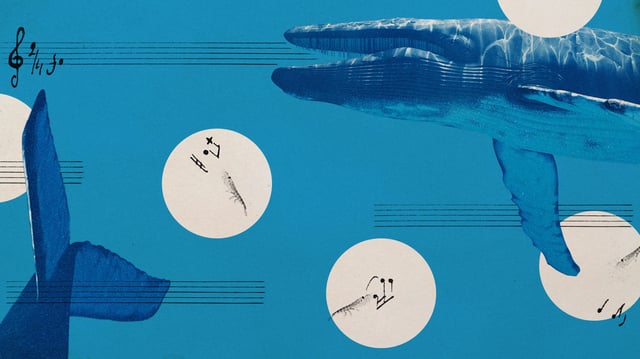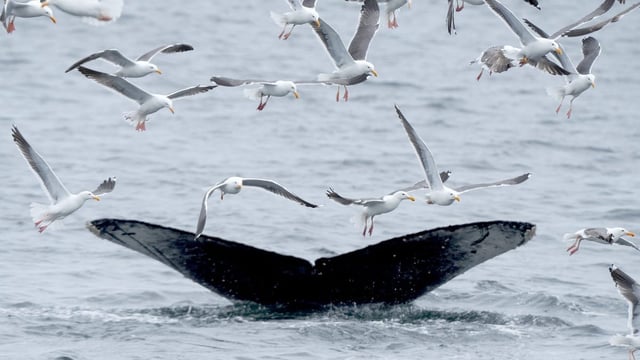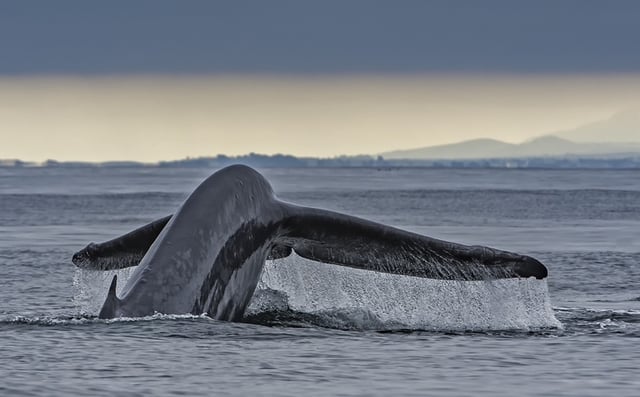Overview
- A PLOS One study examined recordings from July 2015 to June 2021 off the California coast and documented sustained declines in blue and fin whale vocalizations.
- Scientists link the reduced singing to krill shortages triggered by the 2015 'Blob' heatwave and later marine heatwaves that disrupted nutrient-rich waters and fueled toxic algal blooms.
- Biological oceanographer John Ryan says whales are spending more energy searching for prey than singing, signaling widespread stress and potential impacts on reproduction.
- Humpback whales maintained more consistent song detections by switching to small fish like sardines and anchovies, while krill-dependent blue and fin whales remained largely silent.
- Researchers warn that with rising ocean temperatures and more frequent heatwaves, krill declines and muted whale song may persist, threatening baleen whale populations and marine ecosystem stability.


